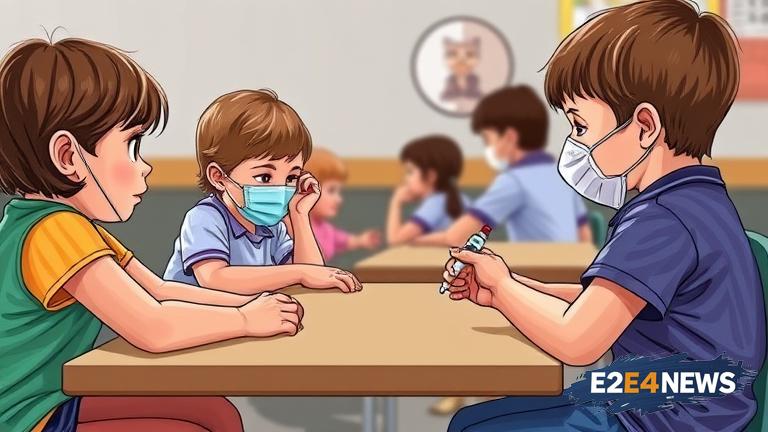Utah’s kindergartners are facing alarmingly low vaccination rates, with a significant number of children not receiving the necessary immunizations to protect against serious diseases. According to recent data, Utah has one of the lowest vaccination rates in the country, with many parents opting out of vaccinating their children due to personal or religious reasons. This trend has sparked concerns among health officials, who warn that low vaccination rates can lead to the spread of preventable diseases, putting not only the unvaccinated children at risk but also those who are too young to be vaccinated or have compromised immune systems. The Utah Department of Health has reported that the state’s kindergartners have vaccination rates that are significantly lower than the national average, with some schools reporting rates as low as 50%. This is particularly concerning, as vaccines are a crucial tool in preventing the spread of diseases such as measles, mumps, and whooping cough. Health officials are urging parents to get their children vaccinated, citing the importance of herd immunity in protecting vulnerable populations. However, some parents remain skeptical about the safety and efficacy of vaccines, despite overwhelming scientific evidence supporting their use. The Utah legislature has also been criticized for its lax vaccination laws, which allow parents to opt out of vaccinating their children for personal or religious reasons. This has led to a proliferation of anti-vaccination groups, which have been spreading misinformation about the dangers of vaccines. In response, health officials are working to educate parents about the importance of vaccination, and to dispel common myths and misconceptions about vaccine safety. Despite these efforts, vaccination rates in Utah remain low, and health officials are warning of a potential public health crisis. The situation is particularly concerning in areas with low vaccination rates, where the risk of disease outbreaks is higher. In recent years, Utah has experienced several outbreaks of preventable diseases, including a measles outbreak in 2019 that affected several dozen people. Health officials are urging parents to take action to protect their children and their communities by getting vaccinated. The Utah Department of Health is also working to improve vaccination rates by increasing access to vaccines and providing education and outreach to parents. However, more needs to be done to address the root causes of low vaccination rates, including misinformation and lack of awareness about the importance of vaccines. The situation in Utah is a stark reminder of the importance of vaccination in protecting public health, and the need for continued education and outreach to promote vaccine awareness. As the situation continues to unfold, health officials are bracing for the possibility of further disease outbreaks, and are urging parents to take action to protect their children and their communities. The low vaccination rates among Utah’s kindergartners are a wake-up call for the state’s public health system, and highlight the need for increased efforts to promote vaccine awareness and education. By working together, health officials, parents, and community leaders can help to improve vaccination rates and protect the health and well-being of Utah’s children. The importance of vaccination cannot be overstated, and it is crucial that parents and caregivers take the necessary steps to protect their children and their communities from preventable diseases. In conclusion, the low vaccination rates among Utah’s kindergartners are a serious concern that requires immediate attention and action. By promoting vaccine awareness and education, and working to address the root causes of low vaccination rates, we can help to protect the health and well-being of Utah’s children and prevent the spread of preventable diseases.
